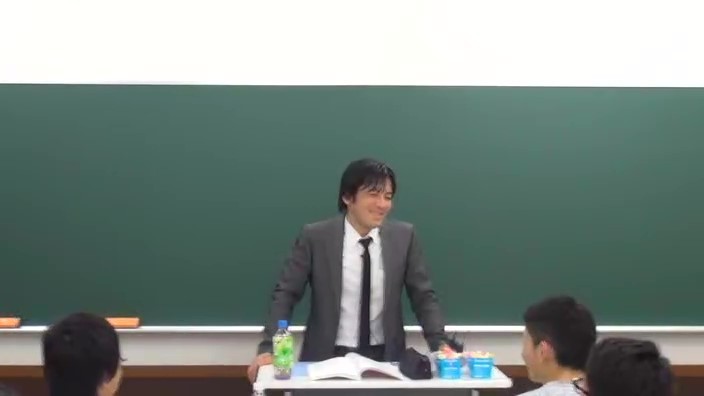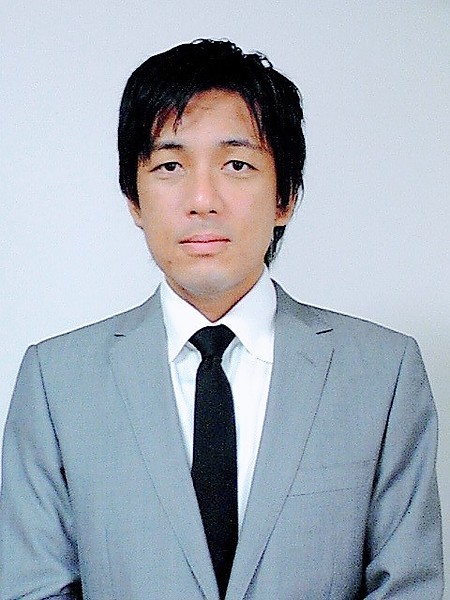大学入試《最重要トピック》★ AI ★ algorithm
英文法と言えば昔から4択空所補充が定番です。
この出題形式はTOEICパート5でもおなじみです。
この種の問題を解きまくる人は多いですが、
文法語法の知識をアウトプット、すなわち、
ライティング、スピーキングに繋げる意識
を持つことでより本質的なトレーニングに
なります。
このドリルの対象学習者は、
大学受験生
英作文対策の基礎
英検2級・準1級
ライティング、スピーキング対策
TOEIC 500 ~ 600 レベル
だとピッタリです。
具体的には選択肢を排除して適度に負荷を
上げることで脳に対するストレスレベルを
高めます。
同時に、英文のパラフレーズ(言い換え)を
まとめて吸収していきます。
それにより、
リーディングだけでなくライティング、スピーキング
でもより自由で実戦的な英語発想が身につきます。
不定詞の基本知識に不安がある人は、
この記事の最後につけた〈インプット英文法・不定詞〉
を読んでください。
全体像を把握し知識を整理した状態で、
アウトプット英文法に取り組んだ方が学習効果が上がります。
では、早速始めましょう!
アウトプット英文法
001.
その組合が今ストライキを行なうことは,組合の崩壊につながる。
( ) the union to go on strike now would mean its ruin.
For the union to go on strike now would mean its ruin.
For the union to go on strike now would lead to its collapse.
Going on strike now would result in the union's collapse.
*go on strike:ストライキをする
*本文はwould から〈仮定法〉
*条件はTo 不定詞
002.
私は夜ふかしをするのが習慣となっています。
It is a rule with me ( ) ( ) ( ) till late at night.
It is a rule with me to stay up till late at night.
It has become a habit for me to stay up late at night.
Staying up late at night is a regular practice for me.
*stay up:起きている=sit up
003.
自分でできることは自分でしないと気がすまないのが彼の性分です。
It is in his nature ( ) ( ) ( ) satisfied unless he does himself what he is able to do.
It is in his nature to not be content unless he accomplishes tasks he can do himself.
His disposition is such that he can't be satisfied unless he does what he's capable of himself.
*be satisfied (with A):満足する
*nature:本質
004.
善良な市⺠になるようにすることが,教育が基本的にめざしていることのひとつである。
( ) ( ) people good citizens is one of the essential aims of education.
To make people good citizens is one of the essential aims of education.
One of the fundamental goals of education is to foster good citizenship.
Education fundamentally aims to create responsible citizens.
*essential:根本的な(=undamental )
005.
彼女ができることは,自分で生計を立てることだけであった。
All she could do was ( ) ( ) her own living.
All she could do was to make her own living.
She could only earn her own living.
Her only option was to support herself financially.
*make(earn) one’s own living:生計をたてる
006.
⺟に何度も起きるように言われたのだが私は寝たふりをしていた。
Mother told me many times ( ) ( ) up, but I pretended to be asleep.
Mother told me many times to get up, but I pretended to be asleep.
Mother told me multiple times to get up, but I feigned sleep.
Mother repeatedly instructed me to wake up, but I pretended to be asleep.
Mother said to me many times, “Get up.” But I made believe to be asleep.
*pretend to do:〜のふりをする
*get up:起きる
007.
彼は父親から受け継いだホテル事業を何とかきりもりしてきている。
He has ( ) ( ) ( ) the hotel business which he inherited from his father.
He has managed to run the hotel business which he inherited from his father.
He has successfully managed the hotel business he inherited from his father.
He has successfully taken over the hotel business handed down from his father.
He has taken over all the management of the hotel business from his father.
*manage to do:なんとか〜する
*inherit A from B:B からA を受け継ぐ
*run A:Aを運営する
008.
彼には工場の投資設備を維持するだけの余裕がない。
He ( ) ( ) to keep up the capital equipment of his factory.
He cannot afford to keep up the capital equipment of his factory.
He lacks the financial capacity to maintain the capital equipment of his factory.
He doesn't have the means to sustain the capital equipment of his factory.
*cannot afford to do: 〜 する余裕がない
*keep up A:〜 を維持する=maintain A
009.
彼は強い方には味方しないと決心した。
He decided ( ) ( ) side with the stronger party.
He decided not to side with the stronger party.
He resolved not to align himself with the stronger faction.
He made a decision not to support the stronger side.
*side with A:A を見方にする =support A
010.
私は辞表を提出するつもりでいたのだが,妻の助言で考えを変えた。
I intended ( ) ( ) handed in my resignation but I changed my mind on wife’s advice.
I intended to have handed in my resignation but I changed my mind on wife’s advice.
I had intended to submit my resignation, but I changed my mind based on my wife's advice.
I had planned to hand in my resignation, but I reconsidered following my wife's suggestion.
*to have done:Vよりも前に時制で~した〈完了不定詞〉
*hand in A:A を提出する=submit A; turn in A
*change one’s mind:気が変わる
011.
彼はその部屋を出る最後の⼈であったのであかりを消すように頼まれた
He was the last man ( ) ( ) the room, so he was asked to put out the lights.
He was the last man to leave the room, so he was asked to put out the lights.
He was the last person to leave the room, so he was asked to extinguish the lights.
Being the final individual to exit the room, he was tasked with turning off the lights.
*put out A:〜を消す= distinguish A
*to leave the room ≒ who leave the room
012.
医者が1 日3 回服用する薬を私にくれた。
The doctor gave me some medicine ( ) ( ) taken [to take] three times a day.
The doctor gave me some medicine to be taken [to take] three times a day.
The doctor provided me with medicine to be taken three times a day.
The doctor prescribed medication that should be taken thrice daily.
The doctor gave me some medicine which should be taken three times a day.
*take some medicine:薬を飲む
013.
私には感謝の気持ちを表わす言葉もありません。
I lack words with which ( ) express my thanks.
I lack words with which to express my thanks.
I lack words to express my gratitude.
I don't have words to convey my thanks.
I cannot thank you enough.
I lack words to express my thanks with.
I cannot thank you too much for it.
I can’t thank you enough.
*前置詞+which to do = to do 〜 前置詞
*with which to express my thanks = to express my thanks with
014.
喉がかわいた。何か冷たい飲み物をくれないか ?
I feel thirsty. Can I have ( ) ( ) ( ) drink ?
I feel thirsty. Can I have something cold to drink ?
I feel thirsty. Can I get something cold to drink?
I'm thirsty. May I have a cold beverage?
*feel thirsty:のどが渇く *to drink = which I can drink
015.
今朝,私は寝過ごしてしまったので私には朝食をとる時間がほとんどなかった。
I overslept (myself) this morning and had almost ( ) ( ) ( ) ( ) breakfast.
I overslept (myself) this morning and had almost no time to eat breakfast.
I overslept this morning and had almost no time to have breakfast.
Oversleeping this morning left me with little time for breakfast.
*oversleep (oneself):寝過ごす
*to eat breakfast = when I can eat breakfast
インプット英文法【不定詞】
(to do …) = (名詞句) or (形容詞句) or (副詞句)
✰ 名詞用法 ➪ S/O/C として機能する
✰ 形容詞用法 ➪ 前の名詞を修飾
✰ 副詞用法 ➪ 上記以外の全て
<用語の整理>
be to 不定詞 〈be to do〉①予定 ②義務 ③可能 ④運命 ⑤意図 ⑥目的
完了不定詞〈to have done〉 文の動詞より前の時制を表す
原形不定詞 〈do〉 知覚動詞・使役動詞の目的格補語
代不定詞〈to do〉 前述動詞表現の反復回避でto のみで表す
1 . 名詞用法
S/O/C になる (前置詞の目的語は不可)
(1) To know oneself is difficult.
自分自身を知ることは難しい。
(2) It is necessary to have a good sleep.
十分に睡眠をとることが必要です。
(3) All I can do is to sing for you.
私にできることは,あなたのために歌うことだけです。
(4) I decided to go on to college.
私は大学に進学することにした。
疑問詞+to do・whether+to do
(1) What to do is an important question.
何をすべきかが重要な問題だ。
(2) How to begin is more difficult than where to stop.
どう始めるかということはどこでやめるかということより難しい。
(3) Please tell me which bus to take.
どちらのバスに乗るべきか私に教えてください。
(4) I don't know whether to trust him or not.
彼を信用すべきかどうか,私にはわからない。
2 .形容詞用法
名 ← to do
(1) I have no friends to help me.
私には助けてくれる友達がいない。
(2) He lent me a book to read.
彼は私に読む本を貸してくれた。
(3) We need a house to live in.
私たちには住む家が必要だ。
3 .副詞用法
❶ 目的
(1) We eat to live, not live to eat.
私たちは生きるために食べるのであり,食べるために生きるのではない。
(2) He studied hard in order to pass the examination.
彼は試験に合格するように一生懸命に勉強した。
(3) He hurried to the station so as to catch the last train.
彼は最終列車に間に合うように駅へと急いだ。
*〔目的〕の意を明示する時には in order to, so as to を使う
❷ (感情の)原因・理由 ★直前に < 感情 > を示す語が出現
(1) I am sorry to hear that you were hurt in the accident.
その事故でけがをされたそうでお気の毒に思っています。
(2) I am very glad to see you.
お目にかかれてとても嬉しいです。
❸ 判断の根拠 ★直前に < 判断 > を表す表現が出現
(1) You must be crazy to go out in this stormy weather.
こんな悪天候に出て行くなんて,君は頭がおかしいに違いない。
(2) What a fool I am to have missed the chance !
そのチャンスを逃したなんて,私はなんて馬鹿なんだろう。
★判断を表す語には助動詞のmust, cannot がある
また感嘆文が使われることも多い
❹ 限定・程度
(1) This book is difficult to read.
この本は読むには難しい。
(2) This book is too difficult to read.
この本は読むにはあまりにも難しすぎる。
→この本は難しすぎて読めない
= It is difficult to read this book.
(3) You are old enough to see its meaning.
君はその意味がわかるのにじゅうぶん年をとっている。
→わかってもいい年頃だ。
=You are so old as to see its meaning
(4) She was so kind as to help me.
彼女は私を助けてくれるほど十分親切だ。
→親切にも私を助けてくれた。
=She was kind enough to help me.
❺ 結果
(1) He awoke to find the house on fire.
彼は目を覚ますと,家が火事になっていることに気づいた。
(2) The boy grew up to be a fine gentleman.
その少年は大きくなって立派な紳士になった。
(3) My grandmother lived to be ninety years old.
私の祖⺟は90 歳まで生きました。
(4) He tried only to fail.
彼は挑戦したが,失敗した。
(5) He went over to India, never to return.
彼はインドに渡って,二度と戻って来なかった。
☆ awake to ~・wake up to ~ 目を覚ますと〜
☆ grow up to ~ 成⻑して〜
☆ live to be ~ 〜になるまで生きる
☆ … only to ~ …したが結局…
☆ … never to ~ …して二度と〜
❻ 条件〔仮定法〕
(1) To hear him speak English, you would take him for an American.
彼が英語を話すのを聞けば,彼をアメリカ人だと思うだろう。
(2) It would be wiser to leave it unsaid.
それは言わないでおいたほうが賢明だろう。
❼ 独立不定詞
(1) To tell the truth, she died three days ago.
実を言うと,彼女は3 年前に死んだのですよ
(2) To make matters worse, her child became sick.
さらに悪いことには,彼女の子供が病気になった
(3) You are, so to speak, a fish out of water.
君はいわば陸に上がった魚のようなものだ
(4) To begin with, beat two eggs in a bowl.
まず始めに,卵を2 つボールの中でかき混ぜます
◆ その他の独立不定詞
☆ to say nothing of 〜 〜は言うまでもなく
☆ not to mention 〜 〜は言うまでもなく
☆ not to speak of 〜 〜は言うまでもなく
☆ strange to say 奇妙なことに
☆ to be sure 確かに
☆ to make a long story short かいつまんで言うと
☆ to be brief 手短かに言えば
◆ be to 構文
(1)〔予定〕 「〜することになっている」 *時間・場所の表現が出現
(2)〔意図〕 「〜するつもりだ・〜したい」 * if 節中が多い
(3)〔必要・義務〕 「〜しなければならない」
(4)〔可能〕 「〜できる」 *受動態が多い
(5)〔運命〕 「〜する運命だ」 *過去形が多い
(1) John and I are to meet at the station at six.
➪ John and I are going to meet at the station at six.
ジョンと私は6 時に駅で会うことになっている。
(2) If you are to succeed, you must work harder.
➪ If you want to succeed, you must work harder.
成功したいなら,君はもっと勉強しなければならない。
(3) You are not to smoke in this room.
➪ You must not smoke in this room.
➪ You should not smoke in this room.
この部屋ではタバコを吸ってはいけない
(4) He was never to see his mother again.
➪ He was destined never to see his mother again.
彼は再び⺟親に会うことのない運命にあった。
(5) The camera was not to be found.
➪ The camera couldn't be found.
そのカメラは見つからなかった
4 . 完了不定詞〈to have done〉
❑ 単純不定詞 <to do> ➪ 文の述語動詞と同じ時制を表す
❑ 完了不定詞 <to have done> ➪ 文の述語動詞よりも1 つ前の時制表す
(1) He seems to be ill.
= It seems that he is ill.
彼は病気らしい。
(2) He seems to have been ill.
= It seems that he was [has been] ill.
彼は病気だったらしい。
(3) He seemed to be ill.
= It seemed that he was ill.
彼は病気であるように思われた。
(4) He seemed to have been ill.
= It seemed that he had been ill.
彼は病気をしていたように思われた。
= He is said to have been rich when he was young.
= It is said that he was rich when he was young.
彼は若いころ金持ちだったそうだ。
She was said to have been the most beautiful lady in the town.
= They said that she had been the most beautiful lady in the town.
彼女は町で一番の美人だったそうだ
◆ 意味上の主語
⑴ 意味上の主語が一般の人 ➪ 表さない
⑵ It is 形 for A to do ➪ A
⑶ It is 形 of〈人〉to do ➪ 〈人〉
⑷ S V O to do ➪ O
⑸ S V to do ➪ 文のS
⑹ S V O 形容詞用法のto do ➪ 直前の名詞(O)
⑴ It is important to learn English.
英語を勉強することは重要だ。
⑵ It is important for Taro to learn English.
太郎が英語を勉強することは重要だ。
⑶ It is kind of you to show me around the town.
町をあちこち案内してもらってありがとうございます。
⑷ My mother told me to eat more vegetables.
=My mother told me that I should eat more vegetables.
母は私にもっと野菜を食べるようにと言った。
⑸ I have decided to major on economics in college.
私は大学で経済学を専攻することに決心した。
⑹ She is not a person to deceive to others.
彼女は他人を騙すような人ではない。
◆ 不定詞のみを目的語にとる動詞
wish(〜したいと思う)
hope(〜したいと思う)
desire(〜したいと思う)
plan(〜するつもりである),
seek(〜しようとする)
attempt(〜しようとする)
manage(何とか〜する)
pretend(〜するふりをする)
afford(〜する余裕がある)
fail(〜しない)
mean(〜するつもりである)
expect(〜するつもりである)
decide(〜することに決める)
determine(〜することに決める)
promise(〜すると約束する)
refuse(〜することを拒む)
learn(〜できるようになる)
今後も英語に関する情報を発信していきます。









